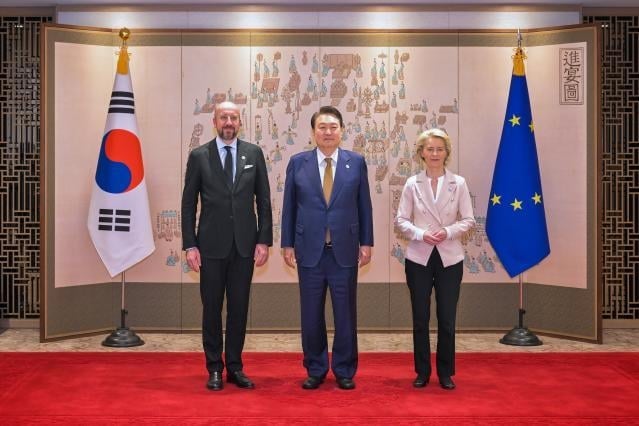“Lives and infrastructure are being destroyed, and the security situation is impeding the delivery of humanitarian aid,” said Volker Perthes, the UN Secretary-General’s Special Representative for Sudan, briefing the Security Council on Monday about recent developments.
Five weeks since the eruption of fighting between the Sudanese Armed Forces (SAF) and the Rapid Support Forces (RSF) on 15 April, the conflict had shown no signs of slowing down despite repeated declarations of ceasefire by both sides, said Mr. Perthes, who also heads the UN mission in the country, UNITAMS.
If honoured, the pending week-long renewable ceasefire should ease aid deliveries to millions in need and “pave the way for peace talks”, he told the Council.
Civilians paying steep price
However, he raised myriad grave concerns about serious human rights violations, rampant looting, and a flood of weapons throughout the country.
In addition, he said the growing ethnicization of the conflict risks engulfing the country in a prolonged conflict, with implications for the region, calling on both parties to return to dialogue in the interest of Sudan and its people.
Civilians have paid a heavy price for this “senseless violence”, he said, noting the more than 860 reported deaths, including 190 children, another 3,500 injured, and many missing. The violence displaced more than one million people; more than 840,000 fled to safer areas while another 250,000 have crossed the borders.
‘Serious human rights violations’
The fighting throughout the country has resulted in “serious human rights abuses and violations” of international humanitarian law and undermined the protection of civilians.
“These violations must be investigated, and the perpetrators brought to justice,” he said. “The UN family continues to monitor and advocate for an end to all violations.”
In Khartoum, Darfur, and elsewhere, the warring parties continue fighting without regard for the laws and norms of war, he said, pointing to destroyed or damaged homes, shops, places of worship, and water and electricity installations, alongside a collapsing health sector, with more than two-thirds of hospitals closed, many healthcare workers killed, and medical supplies running low.
Appalled by reports of sexual violence against women and girls, he said the UN is following up to verify these cases. He also raised concerns of rampant looting and enforced disappearances, and that children continue to be vulnerable to recruitment and use as soldiers, sexual violence, and abduction.
Criminality is compounded by the release of thousands of prisoners and the increasing spread of small arms, he warned.
Spiralling ethnic violence
In El Geneina in West Darfur, clashes between the parties spiralled into ethnic violence on 24 April. Tribal militias joined the fight and civilians took up arms to defend themselves, he said.
Homes, markets, and hospitals were ransacked and burned, and UN premises looted. Renewed violence reportedly led to at least another 280 deaths and tens of thousands displaced to Chad, he said.
Worrying signs of tribal mobilization are also being reported in South Kordofan as well as the Blue Nile region, he warned.
While blame is circulating that the UN did not foresee the conflict, he said the responsibility for the fighting rests with those currently waging it.
“The fighting parties’ decision to fight out their differences on the ground instead of through dialogue is devastating Sudan,” he said.
Volker Perthes, Special Representative of the UN Secretary-General for Sudan and Head of the UN Integrated Transition Assistance Mission in Sudan (UNITAMS), briefs Security Council members on the situation in the country.
Cost of war
Commending efforts led by Saudi Arabia and the United States, he said the SAF and RSF signed the Declaration of Commitments in Jeddah on 11 May, representing an “important step” that commits to respecting international humanitarian law and allow humanitarian access.
Through a hub in Port Sudan, UNITAMS has supported UN Country Team efforts and humanitarian partners to restore the flow of aid supplies into and within the country, he said.
But, additional funding is urgently needed, he said, noting that the revised humanitarian response plan launched on 17 May, requesting $2.6 billion dollars to reach 18 million people, has ballooned from $15 million before the fighting.
“As the talks advance, a diverse array of civil and political stakeholders must play their role,” he said. “Ultimately, only a credible civilian-led transition can chart lasting peace in Sudan.”
Refugee crisis
The UN refugee agency (UNHCR) Assistant High Commissioner for Operations, Raouf Mazou, on Monday, urged increased international support and attention for displaced people from Sudan, including refugees, refugee returnees, and host communities.
Without a concrete and immediate solution, more people are expected to flee from Sudan seeking safety, he cautioned.
Mr. Mazou visited a recent refugee site in Borota, Chad, only a few kilometres from the Sudan border, where 25,000 Sudanese arrived a week ago as the fighting intensified.
“Almost 90 per cent of new arrivals are women and children,” he said, noting that many people have been sheltering under trees in makeshift shelters with very limited services and minimal resources
“As the rainy season approaches, we urgently need to relocate new arrivals to the nearest refugee camps,” he said.
Humanitarian needs are growing
UN agencies have been scrambling to provide assistance to those in need, UN Spokesperson Stéphane Dujarric said on Monday.
The World Food Programme (WFP) has so far reached nearly 450,000 people with food and nutrition support since its distributions resumed on 3 May, and plans are in place to start distributions in Wadi Halfa in Northern State to more than 9,000 people who are fleeing to Egypt.
The UN food agency is also planning to assess the needs of 500,000 men, women and children who are currently trapped in Khartoum, he said, adding that the assessment “should start in the coming days if the security situation allows us to do that”.
Meanwhile, the UN Children’s Fund (UNICEF) and its partners are providing access to clean water and sanitation, as well as hygiene in key locations, helping to deliver some 235,000 litres of clean water to health-care facilities in North Darfur and provided clean water to some 40,000 people in East Darfur in the Elneem camp for internally displaced people.
At the same time, the UN Population Fund (UNFPA) has provided fuel for four maternity hospitals in Khartoum to ensure life-saving health services are available for women and girls who need, Mr. Dujarric said.
Learn more about what the UN is doing to help the Sudanese people here.














